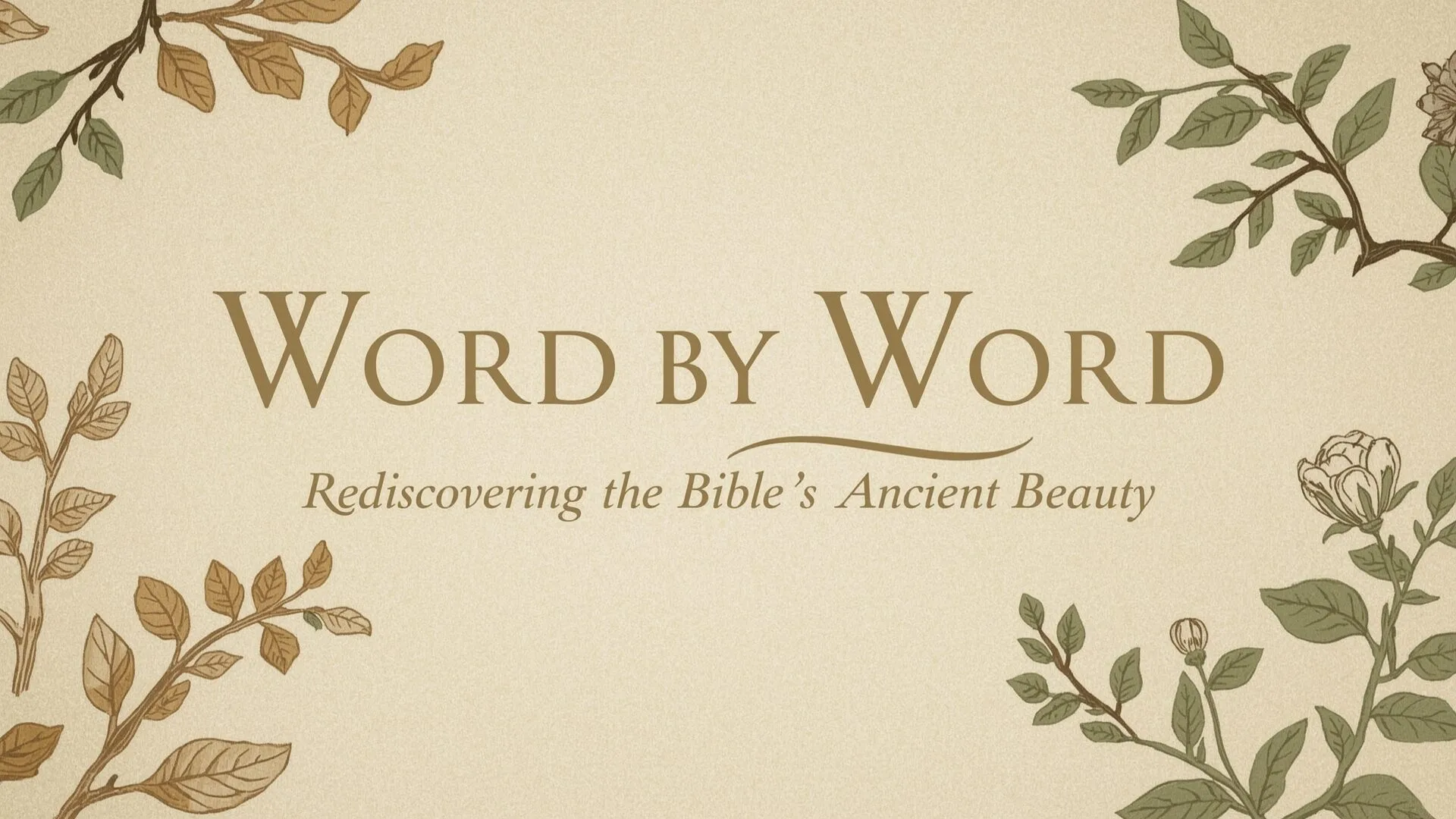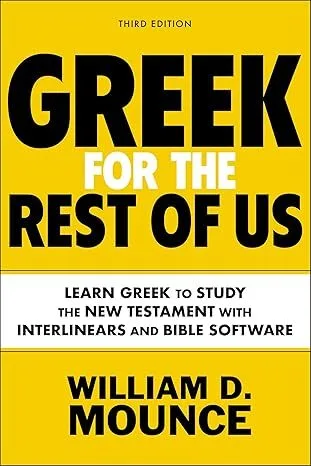Pronunciation Guide: dō-reh-AHN (with emphasis on final syllable)
Basic Definition

Key Information
δωρεάν

Strong’s Entry
g1432
Strong’s G1432: δωρεάν (dorean) fundamentally means “as a gift, freely, gratis, without payment.” It expresses the concept of something given without cost, payment, or merit—completely free of charge and undeserved by the recipient. This adverb encapsulates one of the central theological principles of the gospel: that salvation and divine gifts come to us not through our merit or works, but entirely through God’s gracious benevolence.
Etymology and Morphology
- Part of speech: Adverb
- Derived from: δωρεά (dōrea, G1431) meaning “gift”
- Ultimate root: δίδωμι (didōmi, G1325) meaning “to give”
- Primary usage: Epistles (particularly Pauline), Gospels, Revelation
- Register: Both formal theological discourse and everyday speech
- Appears 9 times in the New Testament
δωρεάν Morphology:
- δωρεάν (adverbial accusative form) – freely, as a gift, without payment
- From δωρεά (nominative singular noun) – gift
- Related to δῶρον (dōron, G1435) – gift, present, offering
Origin & History
The etymology of δωρεάν traces back to the noun δωρεά (dōrea, “gift”), which itself derives from the fundamental Greek verb δίδωμι (didōmi, “to give”). In classical Greek literature, this term was used in both commercial and social contexts to indicate transactions or benefits given without expectation of payment or reciprocity. Xenophon, in his “Cyropaedia” (8.2.7), uses a related form when describing gifts freely given by the Persian king to his subjects without expectation of return.
In the Septuagint (LXX), δωρεάν appears significantly in contexts that formed the theological foundation for New Testament usage. In Psalm 34:7 (LXX 33:8), the psalmist laments that his enemies hate him δωρεάν (without cause). This sense of “groundlessness” or “without merit” became an important theological concept, especially when the term was applied to God’s gracious actions toward humanity. The early Church Fathers, particularly Origen in his “Commentary on Romans,” emphasized δωρεάν as the perfect expression of God’s unmerited favor toward sinners, establishing it as a cornerstone term in the vocabulary of grace.
Expanded Definitions & Translation Options
- Something given completely free of charge, without payment
- Action done without cause or reason (particularly in negative contexts)
- Something received without personal merit or deservedness
- A benefit given out of pure generosity with no expectation of return
- A legally valid transaction where one party receives all benefit at no cost
δωρεάν Translation Options:
- “Freely” – Emphasizes the willingness and generosity of the giver with no constraints
- “Without payment” – Highlights the complete absence of commercial exchange
- “Without cause” – Appropriate in contexts describing groundless actions (especially negative ones)
- “As a gift” – Captures the gratuitous nature while maintaining the connection to generosity
- “Gratis” – Technical term that precisely conveys the absence of payment requirement
Biblical Usage
The concept of δωρεάν appears prominently in passages concerning both divine grace and human interactions. In its first New Testament appearance, Matthew 10:8, Jesus instructs His disciples: “Freely [δωρεάν] you have received, freely [δωρεάν] give.” This established a profound theological principle: that the disciples’ ministry should mirror the gracious character of God Himself, who gives without demanding payment.
Paul’s usage in Romans 3:24 perhaps represents the theological zenith of the term: “being justified freely [δωρεάν] by His grace through the redemption that is in Christ Jesus.” Here, the adverb powerfully reinforces that justification comes not through human merit or works, but purely through divine initiative. This usage epitomizes the contrast between the economy of merit (works) and the economy of grace (gift) that forms the foundation of Pauline soteriology.
Cross-references showing various contextual uses of δωρεάν include:
- “Freely [δωρεάν] you received, freely [δωρεάν] give.” Matthew 10:8
- “But they have conquered him by the blood of the Lamb and by the word of their testimony, for they did not cling to life even in the face of death.” Revelation 12:11
- “Being justified freely [δωρεάν] by His grace through the redemption that is in Christ Jesus.” Romans 3:24
- “I do not nullify the grace of God; for if justification comes through the law, then Christ died for nothing [δωρεάν].” Galatians 2:21
- “Did I commit a sin by humbling myself so that you might be exalted, because I proclaimed God’s good news to you free of charge [δωρεάν]?” 2 Corinthians 11:7
- “The one who is thirsty should come. The one who desires should take the water of life freely [δωρεάν].” Revelation 22:17
- “They hated me without a cause [δωρεάν].” John 15:25
Cultural Insights
In the ancient Mediterranean economy, the concept of δωρεάν carried nuanced social implications beyond mere commercial transactions. Within the patron-client relationships that structured Greco-Roman society, gifts were rarely “free” in the modern sense—they typically established social obligations and reciprocity expectations. Against this cultural backdrop, the biblical usage of δωρεάν as describing God’s gifts was particularly countercultural. While human patrons gave with implicit expectations of honor, loyalty, or future service, God’s δωρεάν gifts came with no such strings attached.
This concept also resonated with Jewish understandings of חִנָּם (chinnam, “freely, without payment”) found in rabbinic teachings. The Mishnah (Avot 1:3) contains the saying, “Be not like servants who serve their master for the sake of receiving a reward,” emphasizing authentic service without mercenary motives. Many synagogues of the period maintained a קֻפָּה (kuppah, “charity fund”) from which the poor could receive assistance דְּמַגָּן (d’maggan, “freely, without cost”)—an institutional embodiment of the δωρεάν principle. Jesus’ ministry, particularly His healing work given δωρεάν to all who came, challenged the commercial healing practices of His time where physicians and temple healers often demanded significant payment.
Theological Significance
The concept of δωρεάν stands at the heart of the gospel message, embodying the radical nature of God’s grace that defies human merit-based systems. In soteriological terms, this adverb emphasizes that salvation is entirely God’s initiative—a gift that cannot be earned, purchased, or deserved. This understanding directly confronts human pride and self-sufficiency, revealing that our relationship with יהוה (Yahweh) begins not with our worthiness but with His generous character.
The Messiah’s instruction to His disciples to give δωρεάν what they had received δωρεάν (Matthew 10:8) establishes a profound spiritual principle: those who have experienced God’s unmerited grace are called to extend this same gracious spirit to others. This creates a divine economy that contrasts sharply with worldly transactional systems. Paul’s ministry embodiment of this principle, preaching “free of charge” (2 Corinthians 11:7), demonstrated how δωρεάν becomes not just a theological concept but a transformed way of living that reflects God’s own generosity.
Moreover, δωρεάν reveals the paradoxical value of what is “free”—far from diminishing the worth of God’s gifts, their unmerited nature actually highlights their inestimable value. The water of life offered δωρεάν in Revelation 22:17 is not worthless because it costs nothing; rather, it is priceless precisely because its worth transcends any payment we could offer. This reveals God’s heart as the ultimate Giver whose love cannot be purchased, only received with gratitude.
Personal Application
Understanding δωρεάν invites us to experience profound liberation from performance-based spirituality. When we truly grasp that God’s love, acceptance, and salvation come to us δωρεάν—completely free of charge and unmerited—we can finally cease our exhausting efforts to earn what can only be received as gift. This truth invites us to rest in the finished work of the Messiah rather than striving to secure what He has already freely provided.
This concept also challenges us to examine our own giving. Do we, like our heavenly Father, give δωρεάν—without hidden agendas, expectations of return, or calculations of worthiness? The principle of δωρεάν calls us to a transformed economic and social life where we become conduits of the same grace we have received. Whether in acts of forgiveness, material generosity, or service to others, we are invited to mirror God’s δωρεάν character, giving freely because we have freely received.
Related Words
- δωρεά (dōrea, G1431) – gift, free gift – This noun form directly relates to δωρεάν and emphasizes the objective gift itself rather than the manner of giving. While δωρεάν describes how something is given (freely), δωρεά names what is given (the gift). See G1431
- χάρις (charis, G5485) – grace, favor, kindness – Though distinct from δωρεάν, χάρις reflects a similar theological concept of unmerited divine favor. Where δωρεάν emphasizes the absence of cost or payment, χάρις highlights the positive attitude of the giver and the joy-producing nature of the gift. See G5485
- δῶρον (dōron, G1435) – gift, present, offering – This term specifically denotes a present or offering, often in religious contexts. Unlike δωρεάν which focuses on the free manner of giving, δῶρον emphasizes the concrete object given, particularly in ceremonial or sacrificial settings. See G1435
- χαρίζομαι (charizomai, G5483) – to show favor, forgive, graciously give – This verb captures the action of giving freely or graciously. While δωρεάν describes the manner (freely), χαρίζομαι describes the action itself, often with connotations of forgiveness or pardon. See G5483
- ἐλεύθερος (eleutheros, G1658) – free, not enslaved – This term relates to freedom or liberty, often contrasted with slavery. Where δωρεάν refers to that which costs nothing, ἐλεύθερος describes a state of being unbound by constraints or ownership. See G1658
Did You Know?
- Did you know that in ancient Rome, events or entertainments provided δωρεάν (without charge) were often political strategies used by wealthy patrons to gain popular support? Unlike these manipulative “free” offerings, God’s δωρεάν gifts come with no hidden agenda—they flow from His generous character rather than calculated self-interest. This contrast highlights the radical purity of divine generosity compared to human “generosity” that often masks ulterior motives.
- Did you know that the concept of δωρεάν profoundly influenced early Christian communities’ economic practices? Historical accounts reveal that many early believers organized systems of mutual support where needs were met δωρεάν (freely) without expectation of repayment. Tertullian’s “Apology” (circa 197 AD) notes how pagans marveled at Christian communities, saying “See how they love one another,” particularly in reference to how freely they shared their resources with those in need, embodying the δωρεάν principle in practical community life.
- Did you know that in modern Greek, the term δωρεάν has evolved but retained its essential meaning? Today in Greece, you might see “ΔΩΡΕΑΝ ΕΙΣΟΔΟΣ” (dorean eisodos) on signs meaning “free admission” or “free entrance.” This contemporary usage connects directly to its biblical meaning, reminding us that the fundamental concept of “without payment” remains unchanged across millennia—a linguistic testament to how this powerful concept continues to resonate in human experience.
Remember This
δωρεάν encapsulates the revolutionary message of the gospel: that in the divine economy of grace, the most valuable things cannot be purchased but only received as gifts, transforming recipients into channels of that same unmerited generosity.
Note: While this entry strives for accuracy, readers engaged in critical research should verify citations and keyword occurrences in their Bible translation of choice. For Biblical citations, the F.O.G Bible project recommends Logos Bible software.
Strong's g1432




